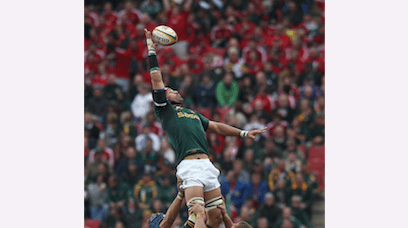As the Chiefs celebrate their second Super 15 title in two years, southern hemisphere rugby turns its attention to the upcoming Rugby Championship, which starts next week.
The Chiefs victory shows why, from one perspective, the All Blacks will be the favourite going into the championship.
That perspective is intelligence—the most valuable asset in rugby.
In the Super Final, losing coach Jake White had an old-fashioned, play-for-territory plan for the ACT Brumbies. Contrary to popular opinion, old-fashioned does not mean outdated.
Chiefs coach Dave Rennie had a modern, 15-man plan. That plan was similar to the Brumbies in that it focussed on territory and forward dominance, but with the highly skilled backs ready to strike when rare opportunities came.
It seems obvious that the 15-man plan would be better—15 men will beat 9, the 9 being the forwards and the halfback. But no.
Using that plan, White has taken a team of no-name players to the Super 15 Final, in his second year with the Brumbies.
In doing so, he has elevated several players to international status, including Brumbies captain Ben Mowen.
White’s plan requires discipline, as it relies on pressuring the opposition into making mistakes, and scoring from them, often through penalty kicks.
Star flanker George Smith, who made a successful return to Super Rugby this season, was outstanding, dominating contested ball for much of the match.
That’s where the coaching brilliance of Rennie came into play, he committed more players to the rucks and malls, nullifying the Brumbies loose forwards.
Once the Chiefs took more control of contested ball, they pressured their way to a come-from-behind victory, scoring two tries in the final quarter to win 27-22 at home in Hamilton.
Rennie summed up the game-winning tactical change by saying: “I think the key was we needed to hang onto a bit of pill for a while and apply a bit of pressure ...”
That one statement is what makes Rennie a brilliant coach.
The fact that each Chiefs player, including the reserves, knew what that sentence meant in terms of their own play is what makes the Chiefs a brilliant side.
Put another way, the Chiefs had one game plan, which didn’t work, so they changed to a second, which did.
Rennie won three world titles with the New Zealand Under-20 side, and two Super titles. Meanwhile, Jake White, a South African, won a World Cup with South Africa.
White is being criticised for his side’s one-dimensional approach. It’s an easy criticism to make, but misguided. Using that one dimension, White took the Brumbies to Loftus Versfeld in Pretoria and beat the Bulls at home—a feat that was not only unexpected, but it was a first-time loss in a play-off for the Bulls at home.
Everybody has discounted the travel burden, but history shows it has been an impossible burden—yet the Brumbies almost broke that record, as well.
When the Rugby Championship starts in a week, New Zealand will have a team that has a plan, as well as the ability to change that plan.
South Africa is still trying to establish a plan—in a sense, they are trying to figure out how far they should venture from the style that the Brumbies play.
Australia have a new coach, Ewen McKenzie, the former Queensland Reds coach. He was an innovative strategist with the Reds, so he should be similar with the Wallabies.
Argentina is still adjusting to the tempo of the competition, despite performing credibly in their first season last year.
The competition starts on Saturday Aug 17 in Sydney, with the All Blacks playing the Wallabies.
McKenzie will bring a fresh approach – and he wants immediate results, so the game is filled with implications.
The All Blacks roll into Sydney with an experienced side and coaching staff, led by relatively new head coach Steve Hansen, but minus experienced half-back Piri Weepu, who Hansen said was too slow.
Peter Lalanabaravi is a rugby writer with over 30 years experience.




